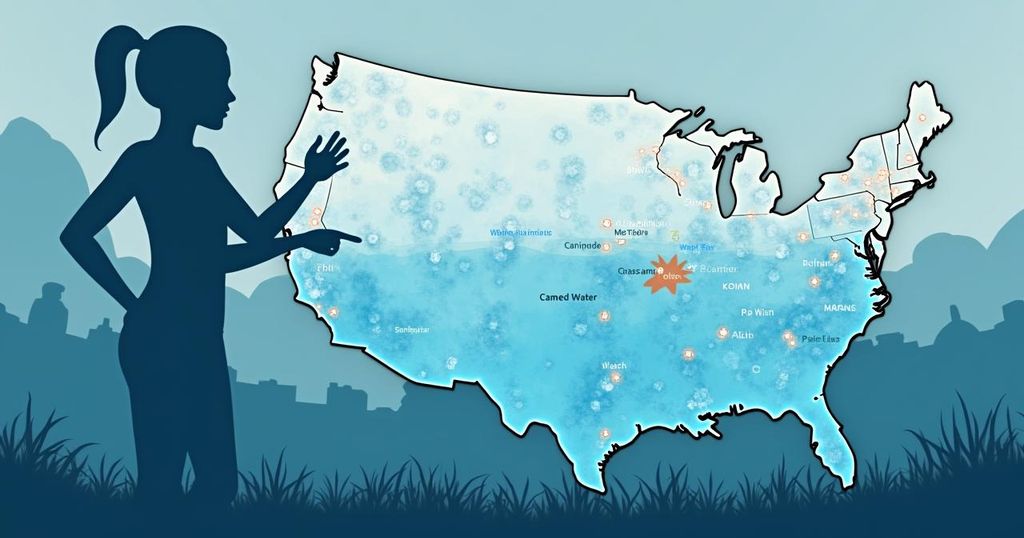Hurricane Helene has devastated the Southeastern United States, particularly Florida, leaving thousands without access to clean water and raising serious health concerns due to contaminated floodwaters. As recovery efforts begin, experts warn of the immediate health risks associated with exposure to floodwaters, including gastrointestinal illnesses and risks to vulnerable populations. The federal government has mobilized support, though long-term recovery will be necessary as communities strive to regain access to safe drinking water.
In the aftermath of Hurricane Helene, which struck Florida and wreaked havoc across the Southeastern United States, the situation remains dire for thousands of residents affected by flooding. While the immediate dangers of the hurricane have subsided, many communities are grappling with significant health threats posed by contaminated water and the risk of mold growth. As health officials caution, access to safe drinking water has become a pressing concern, particularly in areas such as Western North Carolina, where approximately 160 boil water advisories are currently in effect and numerous water treatment facilities remain inoperative. As communities begin to assess the damage, health experts highlight that floodwaters can contain harmful pathogens, leading to serious health consequences for those exposed. Symptoms associated with waterborne illnesses include gastrointestinal issues, nausea, fever, and headaches, particularly affecting vulnerable populations, including the immunocompromised and those with existing health conditions. Furthermore, the risks extend to pregnant women, who face heightened threats of premature labor due to flood-related stressors. The federal government is responding to the crisis, with President Biden and Vice President Kamala Harris visiting affected areas to provide support and assess recovery efforts. Although immediate assistance is underway, officials anticipate that long-term recovery will be necessary, as many areas may remain without clean water for an extended period.
Hurricane Helene made landfall late last week in Florida’s Big Bend region, initially classified as a Category 4 storm. The storm subsequently weakened but continued to unleash catastrophic rainfall across multiple Southeastern states, including North Carolina, South Carolina, Tennessee, Virginia, and Georgia. The hurricane has been linked to climate change, underscoring the increasing severity of weather-related disasters. With over 180 storm-related fatalities reported and countless individuals remaining without electricity or clean water, the health and safety of survivors is of paramount concern.
The effects of Hurricane Helene underscore the urgent need for clean water and the associated health risks of flooding. As recovery efforts persist, the focus must remain on ensuring access to safe drinking water and preventing the spread of waterborne diseases. Looking ahead, long-term support will be essential to restore normalcy in the affected regions, as officials continue their search and rescue missions and address the health concerns that have arisen in the wake of this devastating natural disaster.
Original Source: www.axios.com







